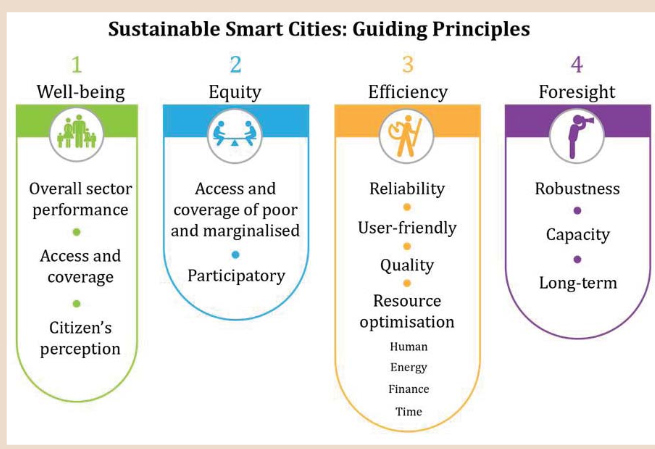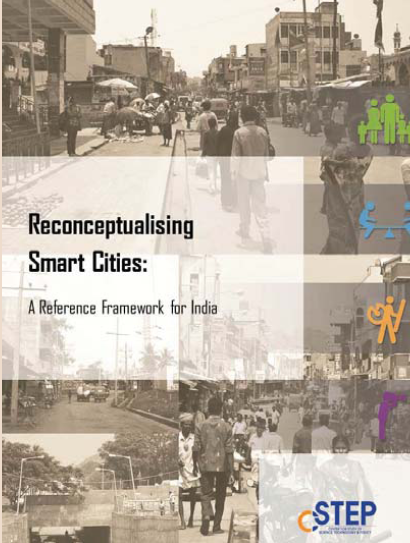A Reference Framework for India
The report is expected to guide policy makers and urban practitioners in making critical decisions, in an accountable manner and spirit, which will truly make Indian cities smart
The Government of India (GoI) initiated the ‘100 Smart Cities Mission’ in 2014. This has triggered deliberations across the country on the concept of smart cities, the need and the orientation of the Mission in the context of India’s present urbanisation scenario.
The concept of a ‘Smart City’ is a relatively new phenomenon in India. This report is a step towards synthesising various aspects related to smart cities that has led to the formation of a proposed Reference Framework by CSTEP, for the Smart Cities Mission in India.
The report begins by carving out the following scope
- What is the level of clarity on critical aspects of smart city development internationally and the lessons it holds for India?
- Where does the Smart Cities Mission fit in India’s larger urban development trajectory?
- What is needed to orient the Smart Cities Mission such that it addresses India’s pressing urban sector challenges and enables different stakeholders to implement the Mission with consistent objectives, to attain a common goal?
Globally, the notion of smart cities is not new. There are multiple ideas, definitions and approaches to smart cities. An analysis of international approaches and the underlying semantics related to smart cities reveals that the concept has only evolved partially. This includes non-clarity in definition, indicators and measures, and standardisation of critical aspects. There is no ‘one size fits all’ model for smart cities that can be replicated in India. The current scenario indicates a critical need for defining and contextualising the various aspects of smart city development.
This report argues that the larger notions of sustainability and good governance encompass the overarching goals of smart cities across the globe. Technology, especially Information and Communication Technology (ICT) is an important enabler in attaining sustainability and good governance. However, technology needs to be supported by an enabling policy environment. This would need a carefully designed framework, which would provide guidance for the realisation of India’s urban agenda. As an important step in India’s urban sector programme trajectory, the Smart Cities Mission needs to be equipped to provide solutions to India’s urban challenges. The report places the Smart Cities Mission as an opportunity to:
- Create an efficient urban management system
- Enhance the capacity of urban institutions
- Push a decentralisation agenda
- Reduce conflicts in the urban environment
- Create enabling conditions for inclusive and equitable urbanisation.
The interventions for achieving the opportunities mentioned above need to be systemic; they cannot be ‘stand-alone’ in nature. The point of departure (from existing urban development programmes) that would make a difference in an increasingly resource constrained world is how judiciously one plans a city. This has to be supported by the enhanced power of technology, an aware and engaged citizenry and a competent and capacitated set of people working within anaccountable framework.This process would determine the ‘smartness’ of a city and herein emerges the need for a Smart City Reference Framework.
The Smart City Reference Framework, which is the culmination of this report, offers directions to both practitioners and theorists. The Framework is driven by the following four guiding principles:

These guiding principles have been derived from the United Nations’ (UN’s) draft Sustainable Development Goals (SDGs). The Reference Framework includes major action stages in the Smart Cities Mission and identifies a set of reference guides to support the agencies responsible for carrying out the action stages.
The processes of city selection and indicator designing for base lining have been explained within the Framework. The Framework aims to crystallise future pathways for smart cities development in India, by laying emphasis on the process of city development that leads to sustainable outcomes.










